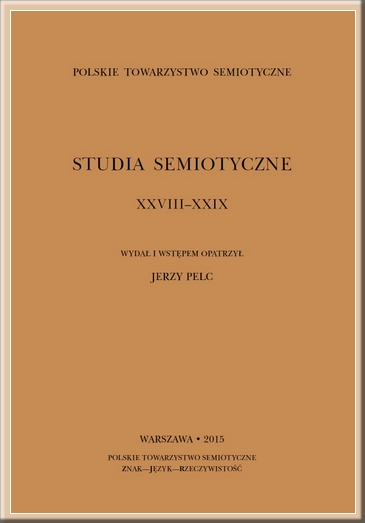Abstract
This paper is an attempt to show the basic relations between the content of the given announcement by the prognosticator and its subsequent receivers. The article presents semiotic qualities of the cognitive operations, and the process of receiving and interpreting the final results of such operations, as well as the qualities crucial to the effectiveness of the communicative act between the sender and the actual and potential receivers of the prognosis.
The aim of the paper is to explore the semiotic specification of semanticpragmatic phenomenon called by the author the “Hermes effect”. The article presents the relation between the sender of the prognosis and the primary prognosis conceived as a text (book, article etc.), the specific type of reasoning (inference, i.e. prognostic argumentation) and the conclusion of the reasoning, as well as the relation between the prognosis and its subsequent receivers. The aforementioned Hermes effect concerns the relation between the way of transferring the content of the prognoses (understood threefold) and the reaction of the addressees, and what happens with the prognosis when it is beyond the first degree sender’s control.

